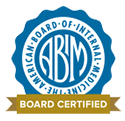The FDA granted accelerated approval of a new Alzheimer’s disease medication called Leqembi, made by the pharmaceutical company Eisai Global based on its ability to “may” slow down the progression of cognitive decline early on in the disease. It works by decreasing the number of amyloid plaques in the brain which appear to be the key feature of the disease. However, there is a risk of brain bleeding. Many experts remain skeptical of the overall impact of the medication at the current time. I understand this, given that the medication was pushed through quickly and has not been out long enough to show the full risks and benefits. Additionally, the cost will range from approximately $8000-$20,000 per year, depending on the health insurance.
This comes on the heels of a Congressional report on an earlier Alzheimer’s drug called Aduhelm made by Biogen pharmaceuticals. This also was granted accelerated approval, but Congress noted an “atypical” way Biogen interacted with the FDA. The FDA reinforced its statement regarding the integrity of its accelerated approval process and noted that it will continue to do so for promising medications. Congress also criticized the cost of $50,000 per year for treatment with Aduhelm.
I am pleased that there is at least a modicum of hope for this treatment. Alzheimer’s is a devastating disease for patients and their loved ones. The current therapies which have been out for many years include Aricept, Exelon, and Namenda. Unfortunately, these have had minimal impact on most patients.
I will address the FDA and medication costs in a different blog.

